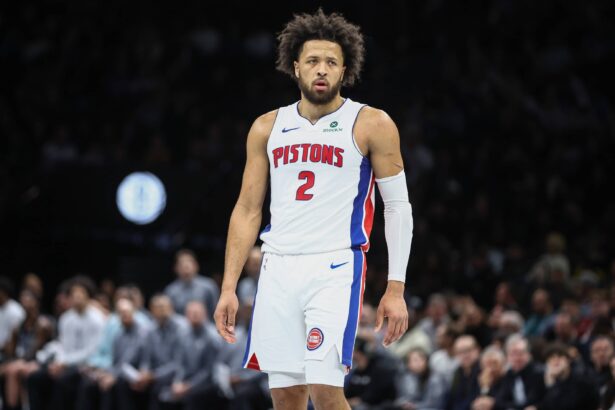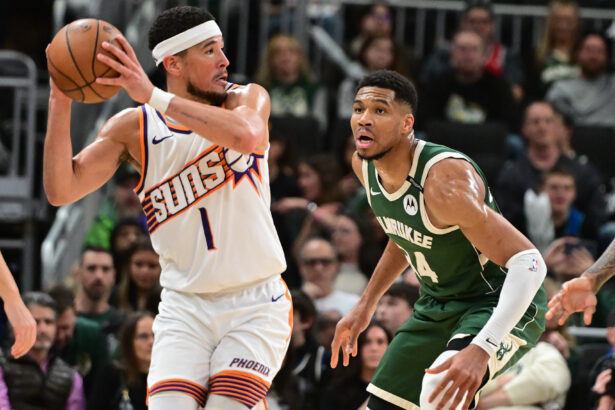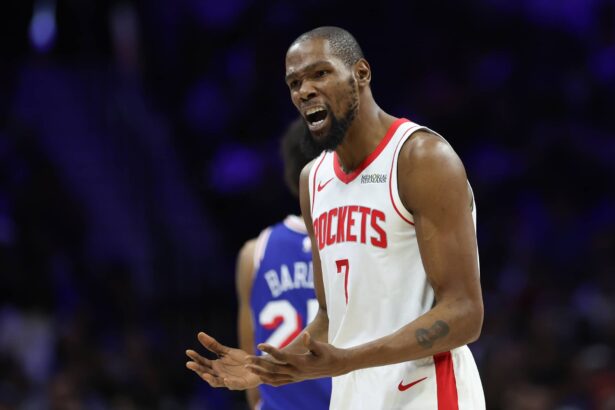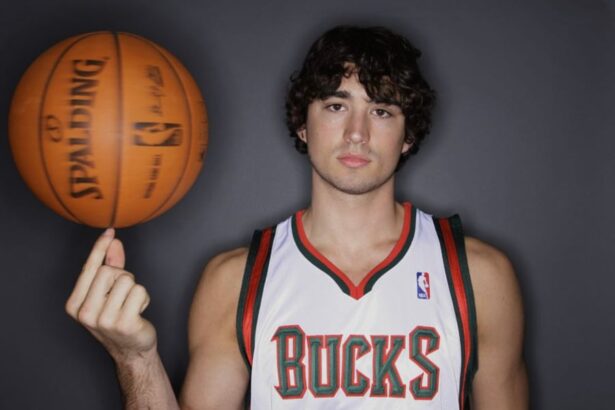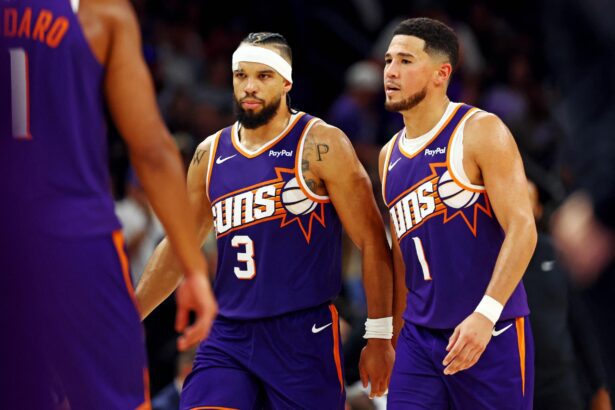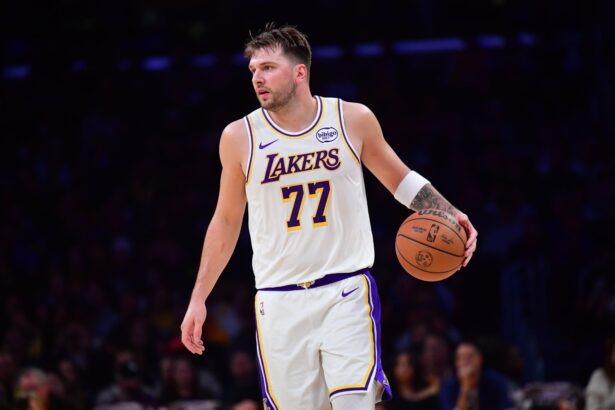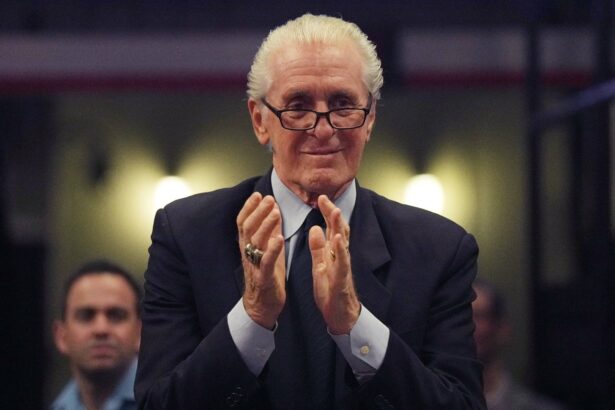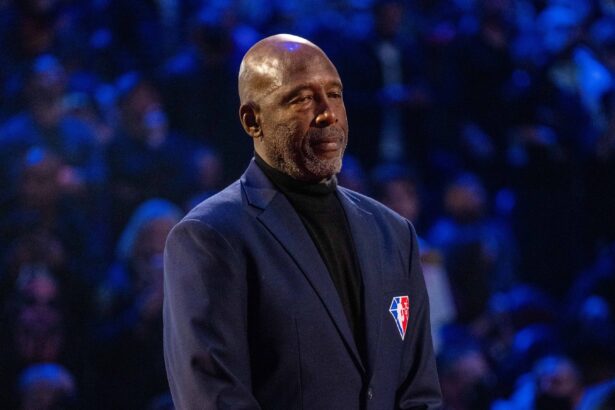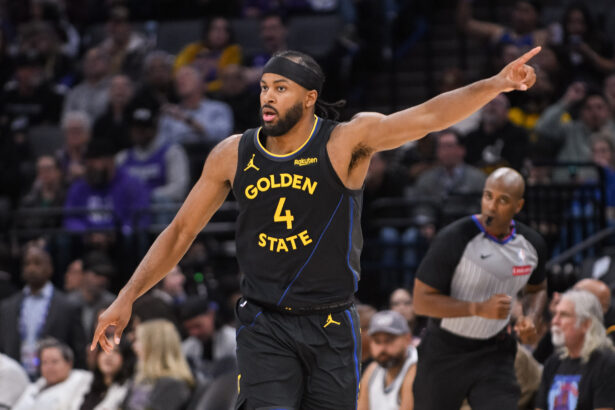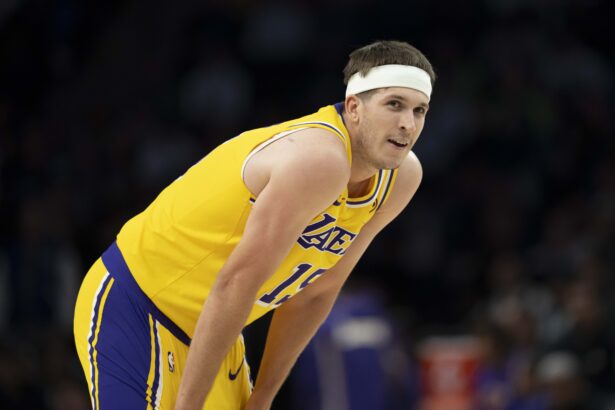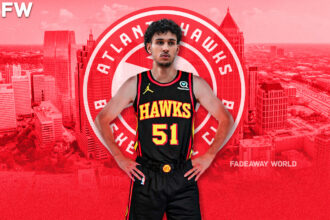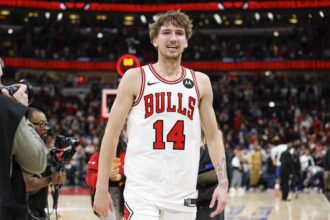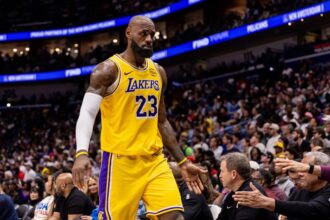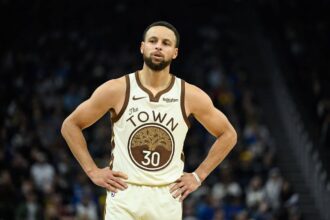For most, being the MVP means that you can lay claim to being the best player in the world for that season. The operative word in MVP is the word valuable. Many may need help to come up with a definition for the term and how it pertains to the voting process. To simplify it, valuable means that you led your team to at least a berth in the NBA playoffs, and without you, the team would be in competition for the worst in the league. Today, we are going to pit some of the game’s greatest MVP winners from the 2000s against the best MVPs from the 2010s.
- 01’ Allen Iverson vs. 16’ Stephen Curry
- 08’ Kobe Bryant vs. 18’ James Harden
- 09’ LeBron James vs. 13’ LeBron James
- 02’ Tim Duncan vs. ‘14 Kevin Durant
- ‘00 Shaquille O’Neal vs. ‘19 Giannis Antetokounmpo
- 2000s MVPs Advantages
- 2010s MVPs Advantages
- Who Would Win This Matchup In A 7-Game Series?
- Next
- 1990s MVPs vs. 2000s MVPs: Who Would Win A 7-Game Series?
- LeBron James’ Superteam vs. Shaquille O’Neal’s Superteam: Who Would Win A 7-Game Series?
- Kobe Bryant’s MVP Points Per Season: The Black Mamba Deserved At Least 3 MVP Awards
- LeBron James’ MVP Points Per Season: King James Deserved More Than Just 4 MVP Awards
- 10 NBA Players Who Created The Most Points In NBA History
Last week, we broke down what a matchup between the 2000s MVP winners and 90s winners would look like. The 90s came out on top thanks to Michael Jordan and Hakeem Olajuwon. Today, we bring in some of the best players from the 2010s to go up against the 2000s MVPs to see if we can finally get the 2000s a win. The 2010s presents a formidable challenge to the 2000s, just as the 90s did with versatile scoring, playmaking, and defense from both the perimeter and the interior. We will break down the matchups, the advantages of each team, and how we think a 7-game series would play out in this highly anticipated matchup.
2000s MVPs: 01’ Allen Iverson, 08’ Kobe Bryant, 09’ LeBron James, 02’ Tim Duncan, 00’ Shaquille O’Neal
2010s MVPs: 16’ Stephen Curry, 15’ James Harden, 13’ LeBron James, 14’ Kevin Durant, 19’ Giannis Antetokounmpo
The matchups have been set, and the competition is ready to begin. See how we break down the series between the 2000s MVPs and the 2010s MVPs.
01’ Allen Iverson vs. 16’ Stephen Curry
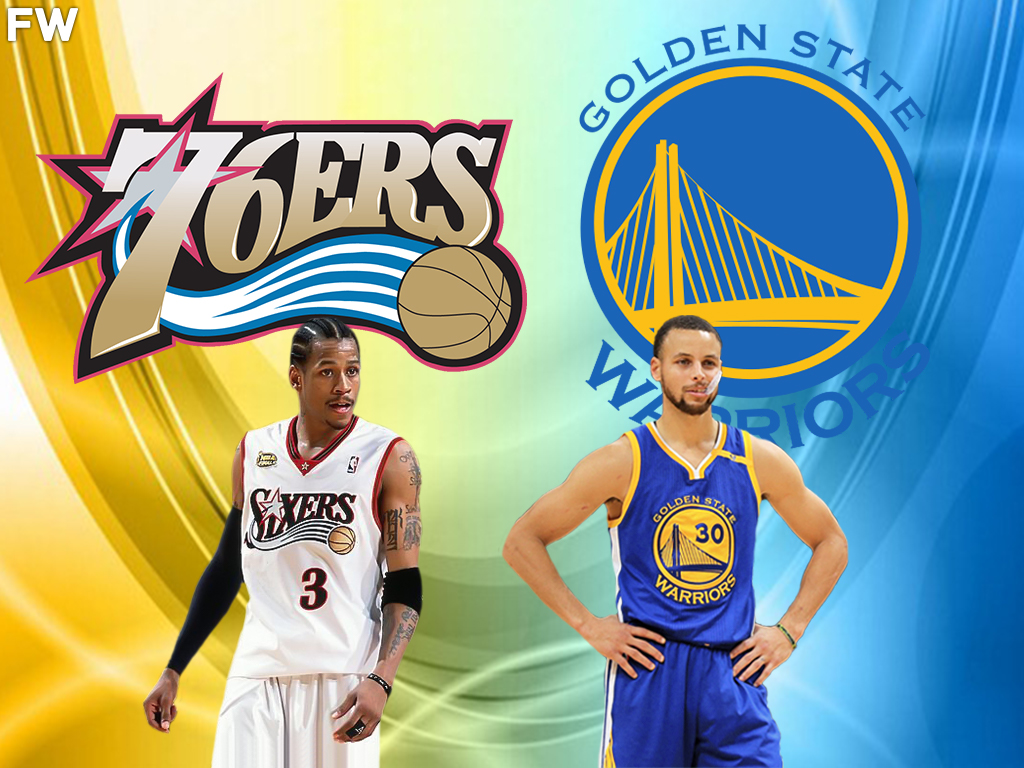
When it comes to being the best player in the world, Allen Iverson in 2001 was just that. At just 6’0’’ tall, Iverson had no fear on the offensive side of the basketball even as he drove the lane and was met with some of the biggest bodies in NBA history. His godly handles allowed him to create any shot he wanted and were something that no perimeter defender could contain. In 2001, Iverson won both the scoring title at 31.1 PPG and the steals title at 2.5 SPG. His off-ball instincts on defense were just as valuable as his offensive abilities, and his speed poses a true threat to Curry’s lesser defense.
Stephen Curry in 2016 was on another planet. He became the first unanimous MVP in NBA history and led the Warriors to an NBA record of 73 wins and just 9 losses. Curry was also the NBA’s scoring and steals leader for the 2016 season at 30.1 PPG and 2.1 SPG. Where he will present a ton of problems for Iverson is moving without the ball and working around screens. Curry’s range and movement will cause Iverson and possibly another defender to cheat toward the perimeter to deter the shot. The thing is, Curry never stops moving without the ball, which could make for a long night for Iverson and the 2000s.
08’ Kobe Bryant vs. 18’ James Harden
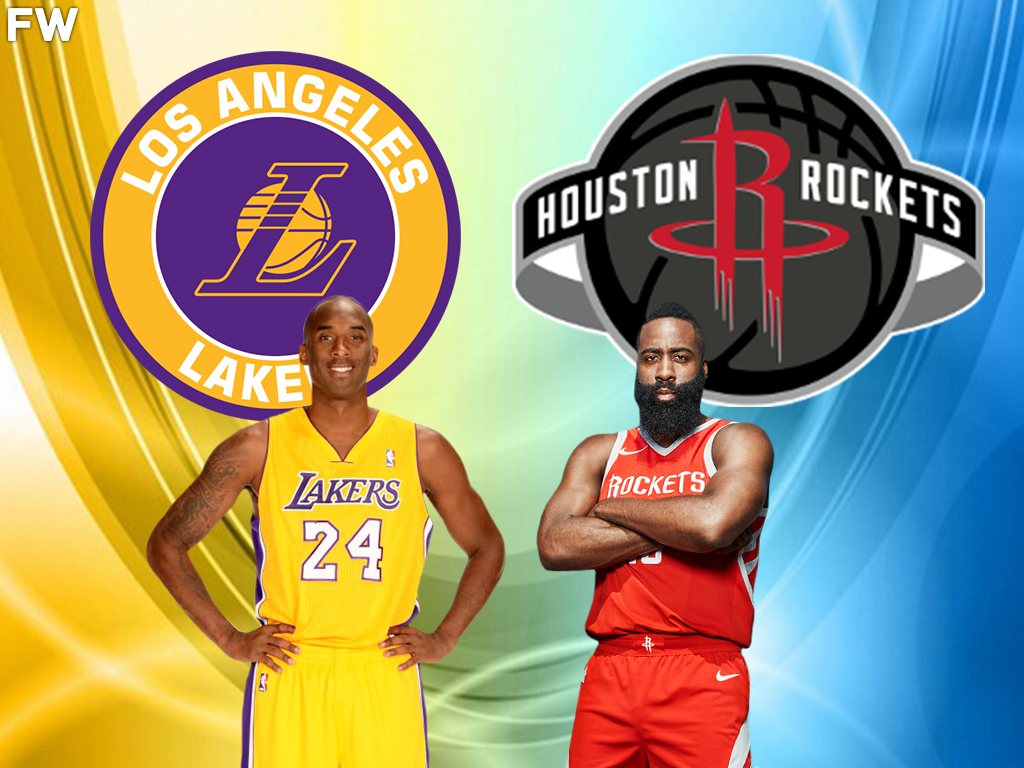
This will be the first matchup that is a glaring advantage for the 2000s team. In 2008, Kobe Bryant was the best player in the world, embarking on a journey that would see him lead the Lakers to 3 straight NBA Finals appearances with 2 championships to show for it. Bryant was elite on both sides of the floor when it came to scoring, playmaking, and on-ball defense. For Bryant, the plan has to be to attack Harden and bring the game to him rather than play around him. Bryant should have no issues getting past Harden on the outside or setting up his mid-range shot by posting him up.
This doesn’t mean that Harden is any sort of pushover on the court. Harden’s MVP season was special and saw him go on one of the great scoring runs in recent memory. Harden was so smooth offensively and could create opportunities for himself and his teammates from anywhere on the court. He possesses a beautiful stepback three from the outside that is set up by his handles and ability to get to the basket. When his game isn’t on, there was no one better in his prime at manipulating the defense and getting to the foul line. These things may not hold up against Kobe because he isn’t afraid to get physical on the defensive end.
09’ LeBron James vs. 13’ LeBron James
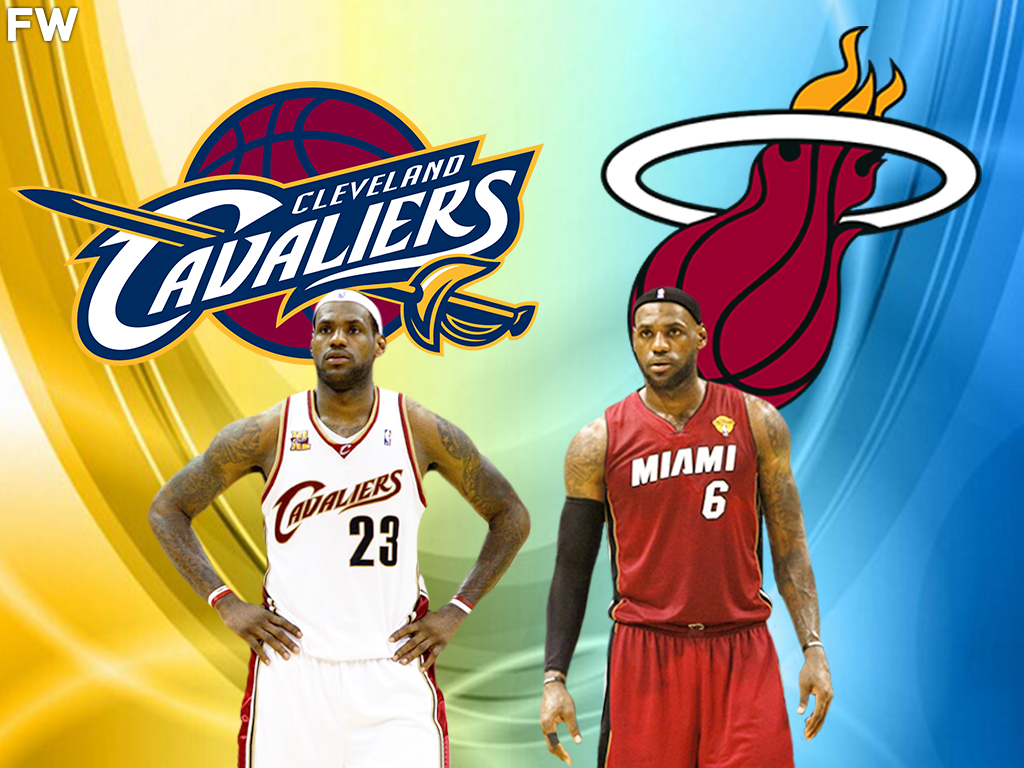
The battle of 2 different versions of LeBron James takes center stage at the small forward position. In 2009, Lebron was an offensive juggernaut in every sense of the word. His scoring was elite at 28.4 PPG as he played downhill and attacked the rim at will. He affected the game in other ways as well, with over 7.0 APG and over 7.0 RPG on the season. His defense was beginning to become elite as he averaged over 1.0 SPG and over 1.0 BPG on the season. The problem facing 09’ LeBron is strength. It isn’t that 09’ James wasn’t already strong, but the version of himself he is going up against was a different breed.
I personally believe that the best version of LeBron James we have ever seen is in 2013 with the Miami Heat. His speed was unmatched, and the Miami Heat were a juggernaut because of the way he ran the floor with or without the ball. He was quite literally the only player in basketball at the time who could guard every position on the court effectively, and his defensive impact warranted a selection for the Defensive Player of the Year award. Both versions of James have a case to be the better one in this matchup, but there are glaring advantages for 2013 LeBron James.
02’ Tim Duncan vs. ‘14 Kevin Durant
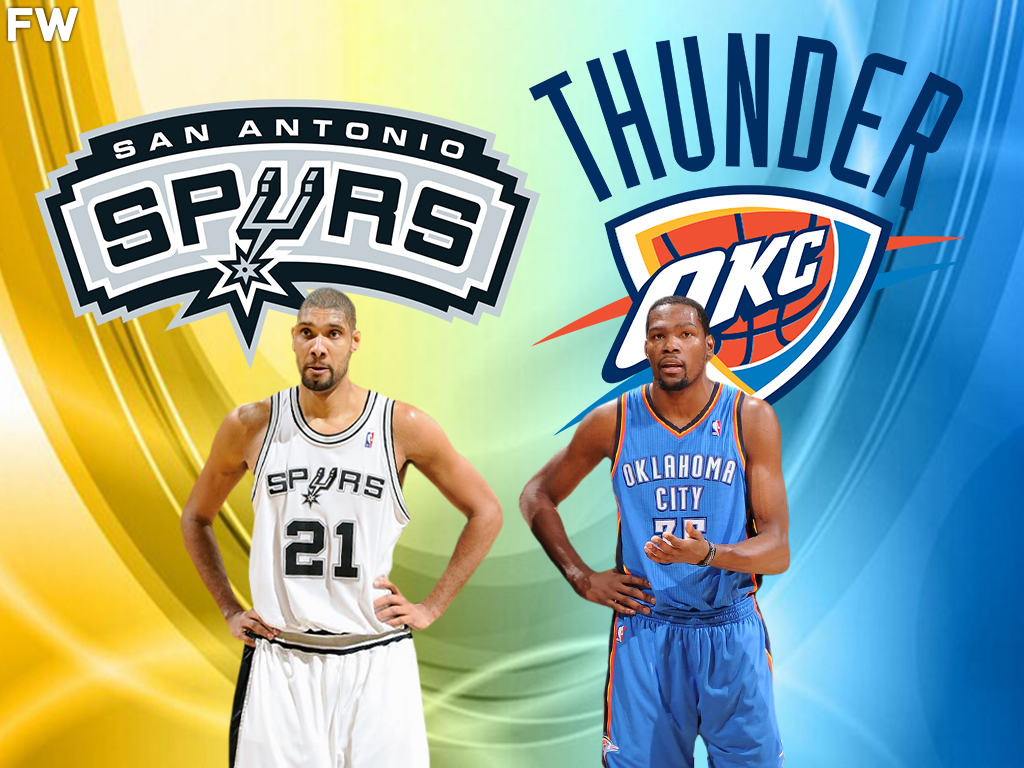
This matchup begins the introduction of some glaring mismatches in favor of the 2000s. There will be a big one when it comes to Tim Duncan going up against Kevin Durant in this series. All Duncan needs to do on offense is get Durant in the paint and go to work. The 2010s can’t even send Giannis over to help because that leaves Shaq all by himself. With Duncan’s high basketball IQ and superb court vision, he can easily make the right decisions every time he touches the ball. I do not see any way that Durant will be able to stop Duncan once he receives the ball on the low block.
Just as there is an advantage for Duncan, there is one for Durant as well. Durant is 7’0’’ and has the handles of a point guard. This allows him to set up shots from anywhere on the floor and hit them at high efficiency. Now, spreading Duncan out to the perimeter also opens things up in the paint, but for back-door cuts and other scoring opportunities. The thing is, Shaq is also lying in wait to deter his fair share of attempts. I do not see how this matchup can end up in favor of Kevin Durant and the 2010s MVPs.
‘00 Shaquille O’Neal vs. ‘19 Giannis Antetokounmpo
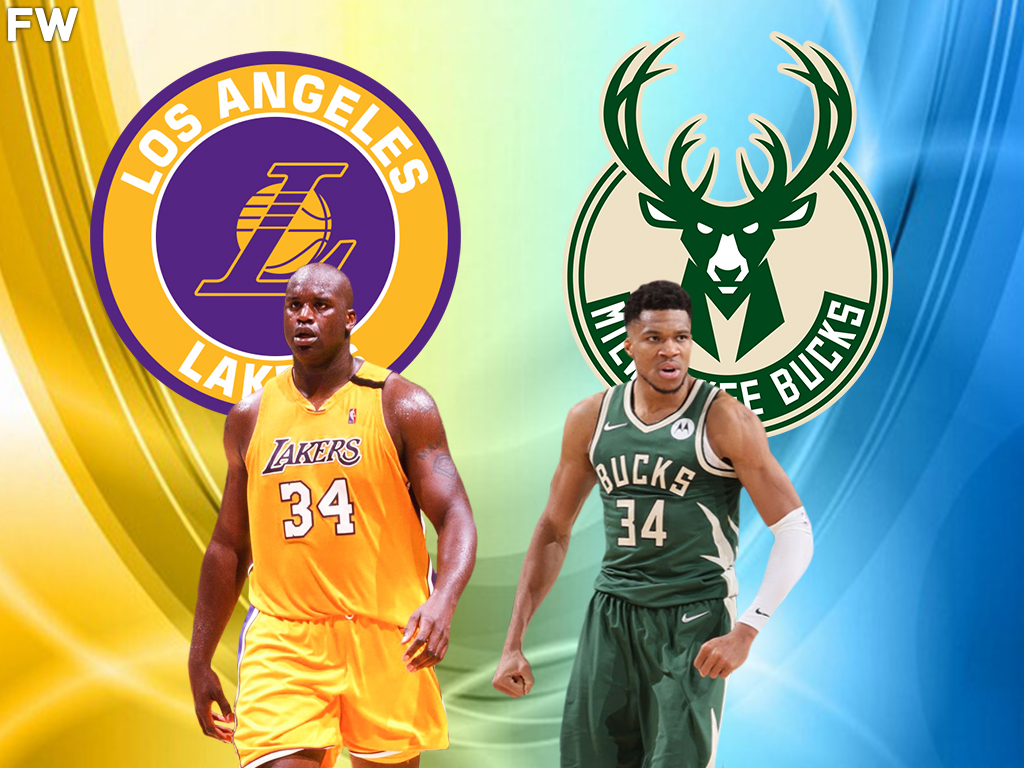
Power vs. power highlights the matchup between Shaquille O’Neal and Giannis Antetokounmpo. In 2000, there had never been as dominant of a player as Shaquille O’Neal. Shaq bulldozed his way over the game’s top big men to an MVP season, an NBA championship, and a Finals MVP award to boot. There was not a single body, no matter how big or strong, that could stop O’Neal once he got the ball in the paint, and I believe that will be the case here against Giannis as well.
In 019, Giannis was awarded his first MVP award and was just 2 years away from his first NBA title. Antetokounmpo was the most dominant force in the paint this season as well and presented a huge mismatch for any opposition on defense. However, Giannis’ defense is predicated on altering and blocking softer attempts rather than big bodies backing him down into the paint. Where Giannis will get the upper hand at any point is his ability to run the floor and finish from there. He also presents a unique matchup in the fact that he likes to operate from the perimeter and get a head of steam down the lane. This strategy may work against Shaq, but I think O’Neal takes a massive advantage in this one.
2000s MVPs Advantages
Each one of these teams holds more than one distinct advantage over the other when it comes to this matchup. For the 2000s, the most obvious advantage they have is in the paint with their frontcourt. The duo of Duncan and Shaq would be virtually unstoppable. Each one of these guys can dominate and take over a game from the inside. The worst part is you cannot double either one because of the opportunities you leave open in doing so. Duncan and Shaq in isolation against Durant and Giannis should be a feast for these 2 all-time greats.
I also would give the edge to the 2000s team in shot creation and playmaking. Iverson and Kobe are both considered ball-dominant players, but with a playmaker like LeBron James handling the ball, this becomes a three-headed weapon for the 2000s. While James is driving the land or surveying the defense, Iverson and Kobe can cut or move with the flow of the offense to receive a pass. Once they get the ball, it will be lights out from there in isolation for either one of them.
2010s MVPs Advantages
Just as the 2000s have over them, the 2010s also hold a couple of distinct advantages over the 2000s. The first of these advantages happens to be in the shooting department. The 2010s has the greatest shooter of all time, and the version of him that was historically efficient on historical volume, especially from the 3-point range. When you add in Kevin Durant and James Harden, it makes the threat of this team to knock down outside shots and otherwise almost impossible to defend.
The second advantage I notice is the one that the 2010s will hold in the open court. The 2010s has 5 guys who love to push the pace of the game, including the best version of LeBron James in that aspect. Curry and Durant will serve as transition shooters, while Giannis and LeBron present a rim-running threat on fast breaks that would break the internet. With this advantage, there will be a constant need from the 2010s to keep the pace as fast as possible and get out in transition off errant shots and turnovers rapidly as well.
Who Would Win This Matchup In A 7-Game Series?
The series kicked off in this highly anticipated matchup, with the 2 versions of LeBron James going head-to-head for the first half. The 2013 version opened things up with incredible defensive plays and quick transition buckets with Curry and Giannis. The 2009 version went to work scoring as well, with nice interior defensive plays from Shaq and Tim Duncan. In the end, it was the 2013 version of LeBron that would prevail and give the 2010s a 1-0 series lead with 38 points, 14 rebounds, and 9 assists.
The 2000s team was out for blood in Game 2 as the duo of Kobe Bryant, and Shaq played angrily. Bryant was fierce on the ball against both Curry and Harden, forcing turnover after turnover in dominant fashion. Shaq handled the paint behind a great decoy play from Tim Duncan as well. Bryant and Kobe combined for 73 points as the dup helped even the series at 1 game apiece.
In Game 3, the series shifted in a big way for the 2000s team. Kobe and Curry traded buckets for the majority of the first half, as Bryant would not let Curry’s unbelievable shooting stop him from chasing a win. Durant got heavily involved in the 2010s as he displayed his whole arsenal of offensive ability and dropped 34 points. For the 2000s, it was the first time we’d call Iverson’s name in big moments as the 2010s defense got lackadaisical when it came to him. Iverson scored 43 as the 2000s would pick up a crucial Game 3 victory and lead the series 2-1.
The 4th game of this series is one that purely belonged to 2013 LeBron James and Giannis Antetokounmpo. The duo was blurred on the court with consistent defensive stops and fast break buckets. Giannis manned the paint while James was all over the place for the 2010s from the inside to the outside on most possessions. With Giannis’ 38 points and 5 blocks and James’ 34 points and 12 assists, the 2010s pick up a crucial victory and even the series at 2 games each.
In Game 5, Kobe Bryant, Shaq, and Tim Duncan would take the series back to the 2000s. After being embarrassed in Game 4, Duncan would take his defense to another level on Kevin Durant. Duncan stepped out to the perimeter and refused to let Durant get around him at all. With a little more physicality, Giannis struggled as well, with Shaq not allowing him to get anything close to the basket. Bryant took care of the rest on offense with timely stops and mid-range bucket after mid-range bucket. The 2000s would cruise to an easy 3-2 lead behind Bryant’s 42 points and 2009 LeBron’s 18 assists.
Everything is on the line for the 2010s in Game 6, while the 2000s have a chance to close things out. At first, 2013 LeBron James took over from the opening tipoff with stellar play on both sides of the ball and all-around play on offense. He assisted or scored on 50 first-half points as the 2010s took the lead into halftime. In the second half, though, it was all Kobe Bryant, as he just refused to lose under any circumstances. Bryant would go for 32 second-half points, and with stellar interior play from Shaq, Duncan, and James, the 2010s would wrap up the series in 6 games for the victory.
Finals Results: 2000s MVPs vs. 2010s MVPs 4-2
Finals MVP: Kobe Bryant
We sincerely appreciate and respect you as a reader of our site. It would help us a lot if you follow us on Google News because of the latest update.
Thanks for following us. We really appreciate your support.






